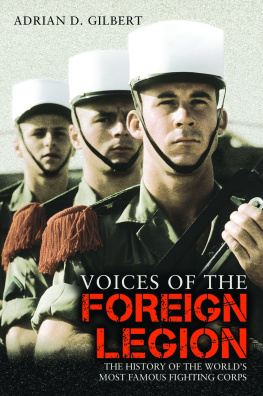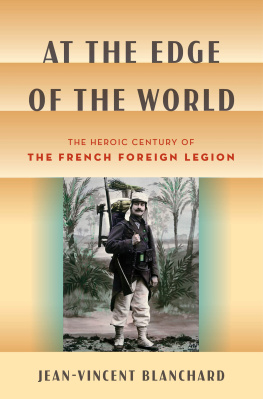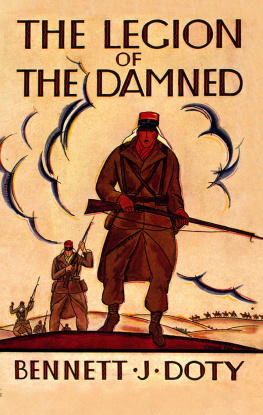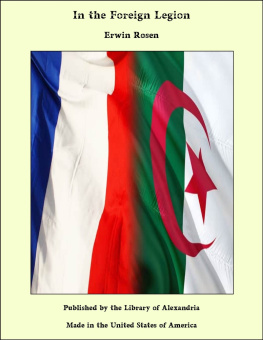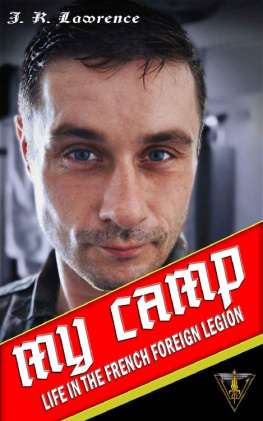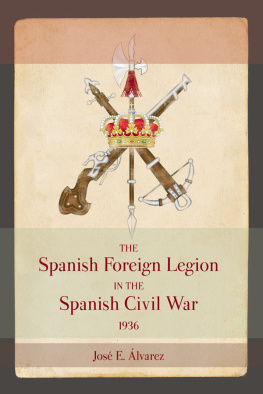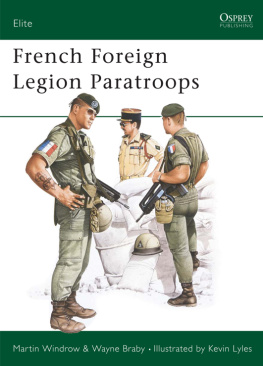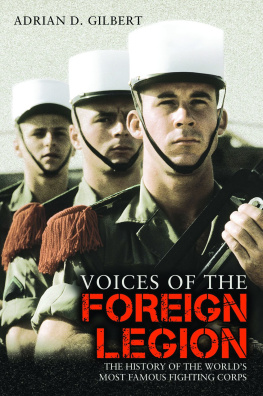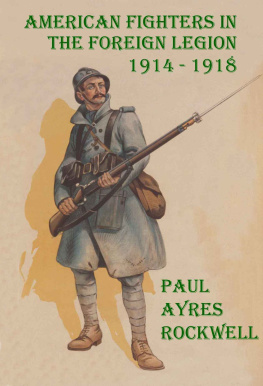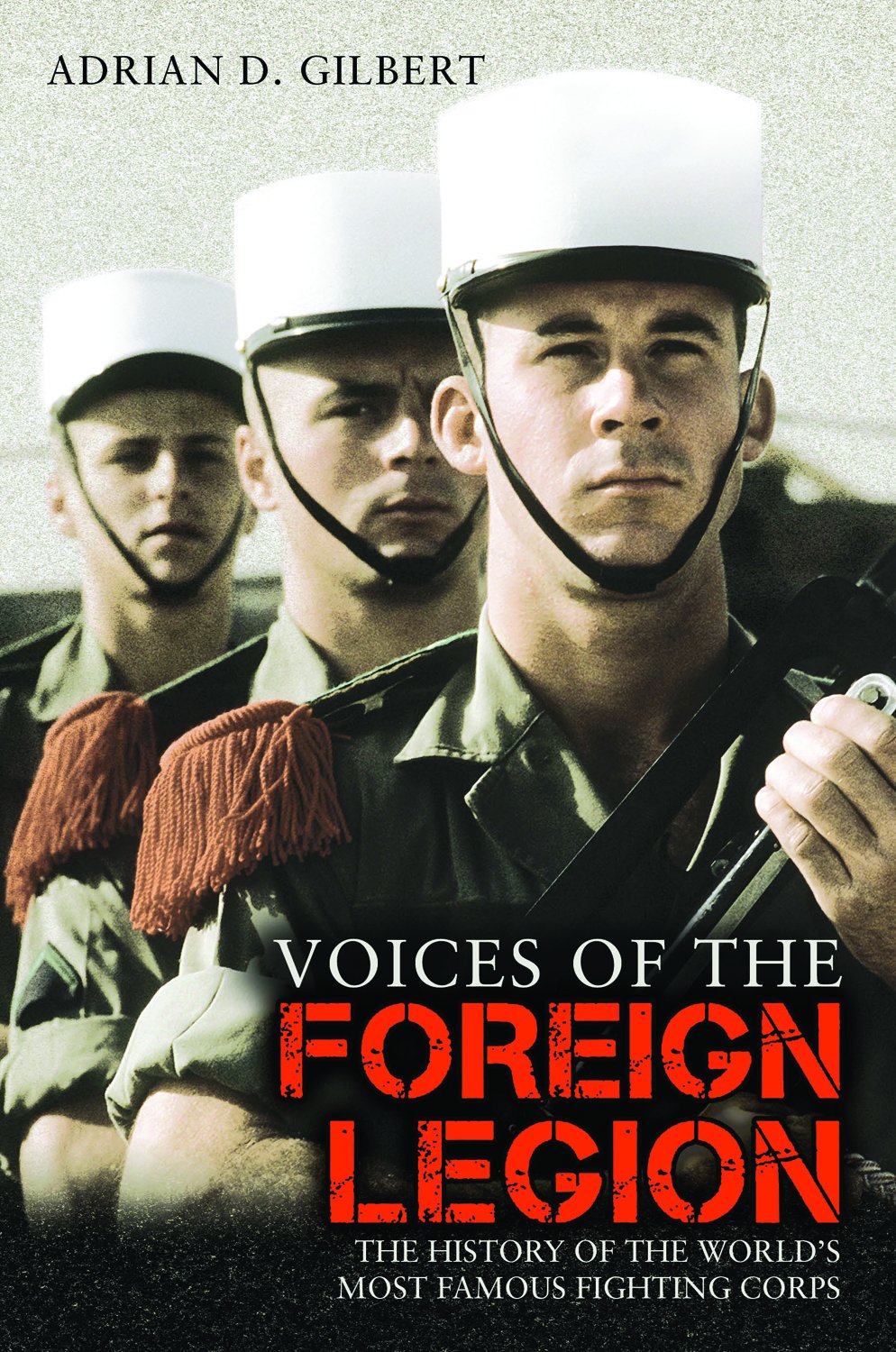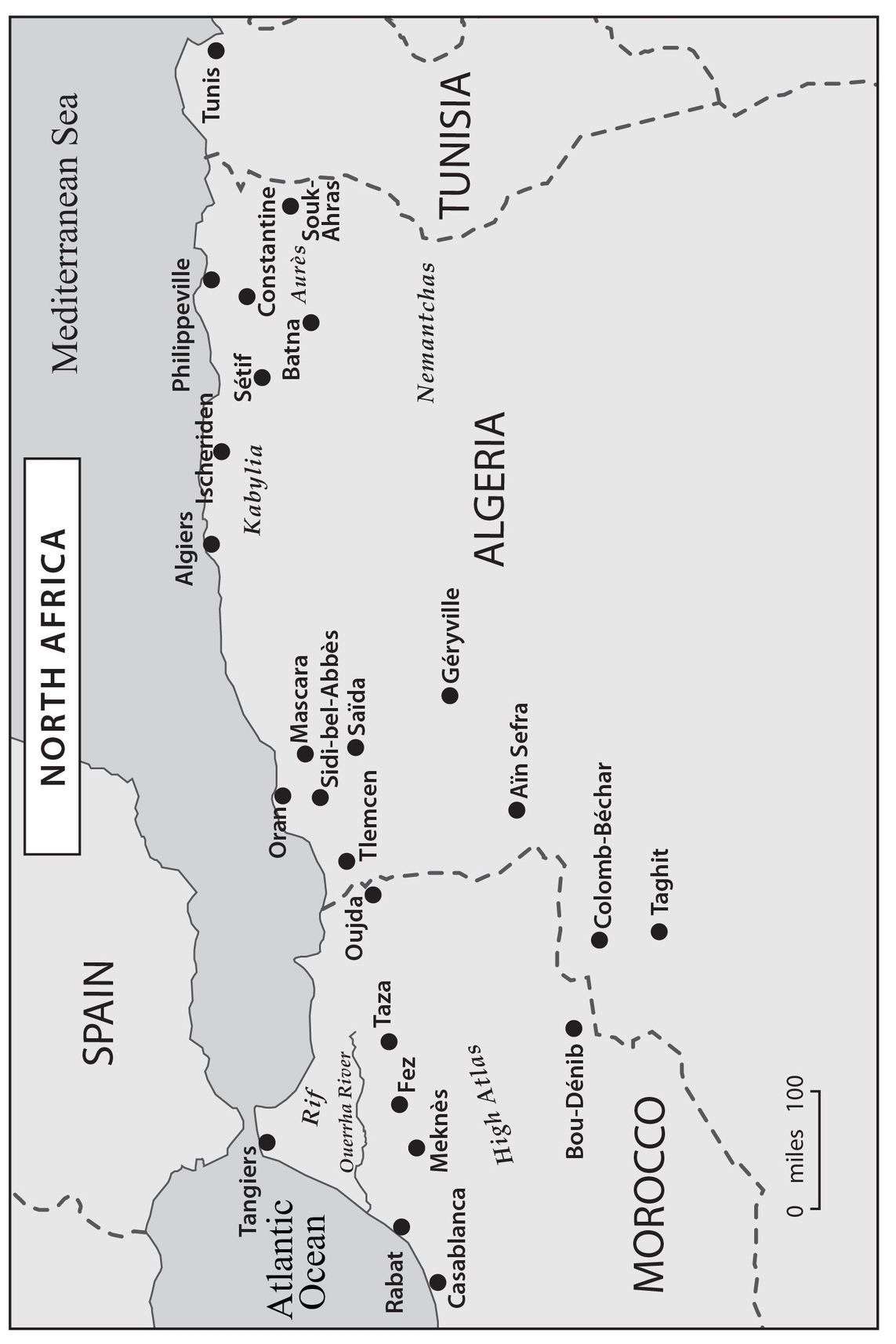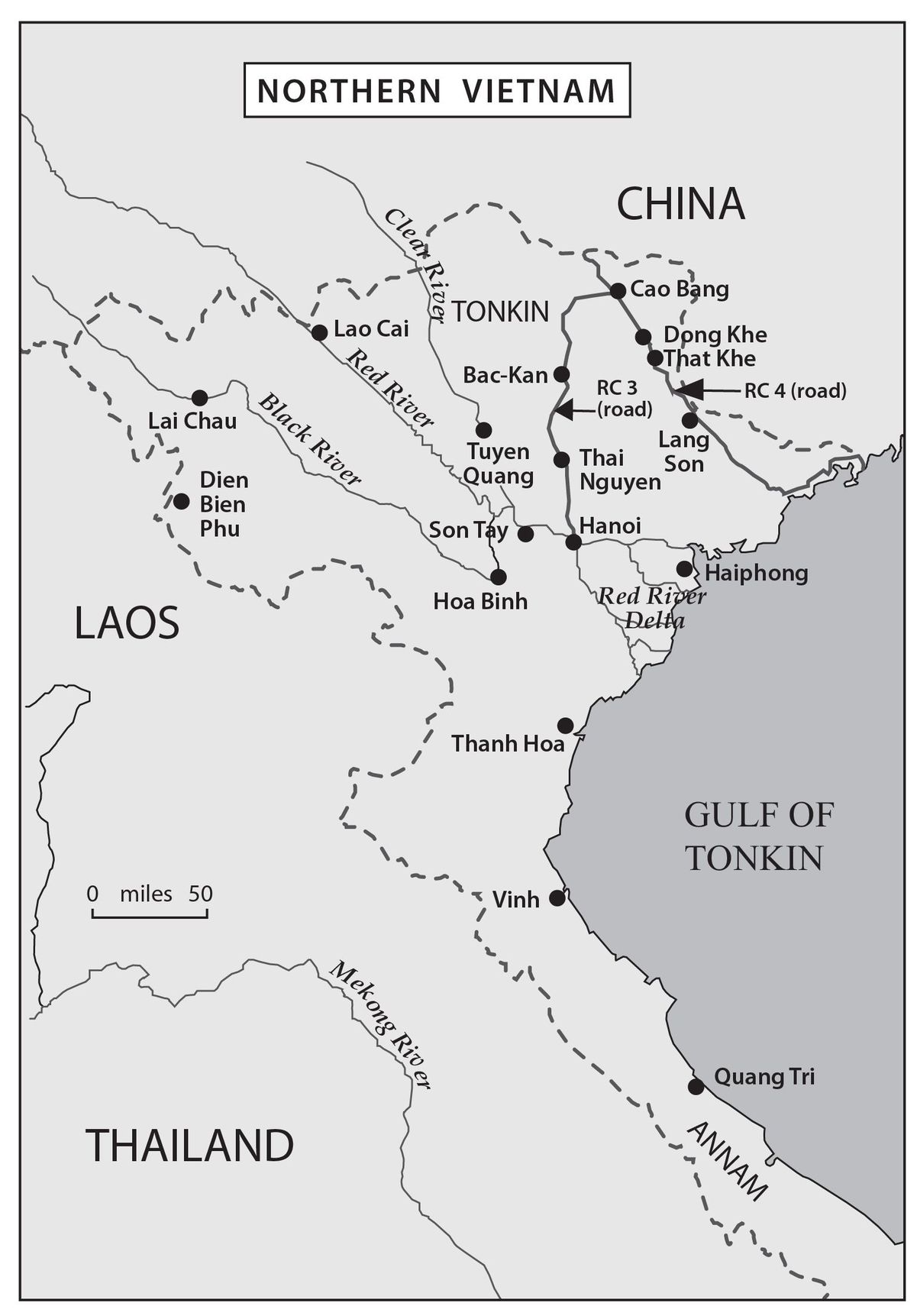ACKNOWLEDGEMENTS
T he Imperial War Museum is always a treasure trove of information on any military subject, and my thanks go to the keepers and staff of the departments of Printed Books and of Documents and to the Sound Archive. The British Library and the London Library were also invaluable as a source of essential books.
I would also like to thank Brigadier Tony Hunter-Choat OBE of the Foreign Legion Association of Great Britain, who kindly pointed the way towards a number of former legionnaires. Among these, I would especially like to thank Dave Cunliffe, Carl Jacko Jackson, Matt Rake and David Taylor. My thanks also extend to Mrs E. P. Deman (widow of Peter [formerly Erwin] Deman) and Kevin Foster for their permission to use material via the IWMs Sound Archive. My gratitude also goes to the help provided by others who wish to remain anonymous.
I am grateful to the authors, agents and publishers who have granted me permission to use material from the following works: Leslie Aparvary, A Legionnaires Journey (Detselig Enterprises); Gareth Carins, Diary of a Legionnaire: My Life in the French Foreign Legion (Grosvenor House, 2007 author website: www.diaryofalegionnaire.com ); Blaise Cendrars, Lice (Peter Owen); Anthony Delmayne, Sahara Desert Escape (Jarrolds), reprinted by permission of the Random House Group; Christian Jennings, Mouthful of Rocks: Through Africa and Corsica in the French Foreign Legion (Bloomsbury); Simon Low, The Boys from Baghdad (Mainstream); Pdraig OKeeffe with Ralph Riegel, Hidden Soldier: An Irish Legionnaires Wars from Bosnia to Iraq (The OBrien Press Ltd, Dublin Padraig OKeeffe and Ralph Riegel); Simon Murray, Legionnaire: An Englishman in the French Foreign Legion (Sidgwick & Jackson); John Parker, Inside the Foreign Legion: The Sensational Story of the Worlds Toughest Army (Piatkus/Little Brown); Jaime Salazar, Legion of the Lost: The True Experience of an American in the French Foreign Legion (Berkley Caliber), represented by Andrew Lownie; Howard Simpson, Dien Bien Phu: The Epic Battle America Forgot (Potomac Books); Zosa Szajkowski, Jews and the French Foreign Legion (KTAV); Jacques Weygand, Lgionnaire: Life with the Foreign Legion Cavalry ( Jacques Weygand, 1952), reproduced by permission of Chambers Harrap Publishers Ltd; James Worden, Wayward Legionnaire (Robert Hale, 1988), reproduced by permission of James Worden and Pollinger Ltd.
I would also like to thank publishers and agents for their help in attempting to secure copyright holders of these works: Jo Capka, Red Sky at Night and Ernst Lhndorff, Hell in the Foreign Legion (HarperCollins); Pierre Leuliette, St Michael and the Dragon , John Lodwick, Bid the Soldiers Shoot , Susan Travers, Tomorrow be Brave (Random House); Adrian Liddell Hart, Strange Company and Colin John, Nothing to Lose (Orion Publishing Group); G. Ward Price, In Morocco with the Legion (Random House and Curtis Brown).
Every effort has been made to clear permissions, and all omissions are unintentional. If permission has not been granted please contact the publisher, who will include a credit in subsequent printings and editions.
Thanks too to my agent Andrew Lownie, and to Graeme Blaikie, Iain MacGregor and Kate McLelland at Mainstream Publishing. And a special thanks to Victoria.
APPENDIX
LEGION STRENGTHS AND DEPLOYMENT
DEPLOYMENT IN 1933
In 1933 the strength of the Foreign Legion stood at approximately 20,000 men, with 17,500 stationed in North Africa and Syria and the remainder in Indochina and Madagascar. The Legions deployment with the bulk of its forces in Morocco reflected its recent campaign against the Moroccan Berber tribes who had only recently been defeated.
| 1st Foreign Regiment | Sidi-bel-Abbs, Algeria |
| 2nd Foreign Regiment | Meknes, Morocco |
| 3rd Foreign Regiment | Fez, Morocco |
| 4th Foreign Regiment | Marrakesh, Morocco |
5th Foreign Regiment
(one detached battalion in Syria) | Tonkin, Indochina |
| Foreign Cavalry Regiment | Taroudent, Morocco |
Deployment in 2009
The modern Legion comprises 7,669 officers, NCOs and legionnaires, divided into 11 regimental formations deployed across the globe.
| 1st Foreign Regiment | Aubagne, France |
| 1 RE ( 1er Rgiment tranger ) |
| (administrative regiment) |
| 4th Foreign Regiment | Castelnaudary, France |
| 4 RE ( 4me Rgiment tranger ) |
| (training regiment) |
| GRLE ( Groupement de Recrutement de la Lgion trangre ) | Fort de Nogent, Paris |
| (recruitment group) |
| 1st Foreign Cavalry Regiment | Orange, France |
| 1 REC ( 1er Rgiment tranger de Cavalerie ) |
| 1st Foreign Engineering Regiment | Laudun, France |
| 1 REG (1 er Rgiment tranger de Gnie ) |
| 2nd Foreign Engineering Regiment | Saint Christol, France |
| 2 REG ( 2me Rgiment tranger de Gnie ) |
| 2nd Foreign Infantry Regiment | Nmes, France |
| 2 REI ( 2me Rgiment tranger dIn fanterie ) |
| 2nd Foreign Parachute Regiment | Calvi, Corsica |
| 2 REP ( 2me Rgiment tranger Parachutiste ) |
| 3rd Foreign Infantry Regiment | Kourou, French Guiana |
| 3 REI ( 3me Rgiment tranger dInfanterie ) |
| 13th Foreign Legion Half-Brigade | Djibouti, Republic of Djibouti |
| 13 DBLE ( 13me Demi-Brigade de Lgion trangre ) |
| Foreign Legion Detachment | Mayotte, Indian Ocean |
| DLEM ( Dtachement de Lgion trangre de Mayotte ) |
POSTSCRIPT
A s a legionnaires five-year contract comes to an end, he must make the decision to either stay in the Legion or go back to civilian life. If he decides to remain, there is a well-mapped career structure and a pension after 15 years of service. If the legionnaire chooses to call it a day after completing his contract, he will be returned to Aubagne for the processing of his departure. This concludes with a few words of farewell from the Legion Commandant and the issue of the Certificate of Military Service that confirms he has served the Legion with honneur et fidlit .
Whatever a mans length of service, the Legion will have made an indelible impression on him. This book concludes with some final thoughts from a few legionnaires on their experiences of being a member of the French Foreign Legion:
The Legion gave me back a bit of my self-respect, because with my marriage breaking up I was starting to go downhill. When I went to the Legion I got on with the job and started to feel a bit like a man again. I had achieved something not many people can do. Theres nothing romantic about the Legion, I can assure you. Its physical, hard, and its an experience that once youve done it, you either regret it or dont regret it. And I dont regret it. I thoroughly enjoyed it.
In all the 12 years I was in the British Army the only outside countries I saw were Germany, plus a six-week tour in Canada, an exercise in Denmark and five and a half years service in Northern Ireland. In my five and a half years in the Legion I was based in Corsica, I went to French Guyane, Djibouti, the Republic of Central Africa, Rwanda, Chad, and served on the frontiers of Ethiopia and Somalia. So I did a lot more with the Legion than I ever experienced in the British Army. The Legion goes anywhere and everywhere when needed.

